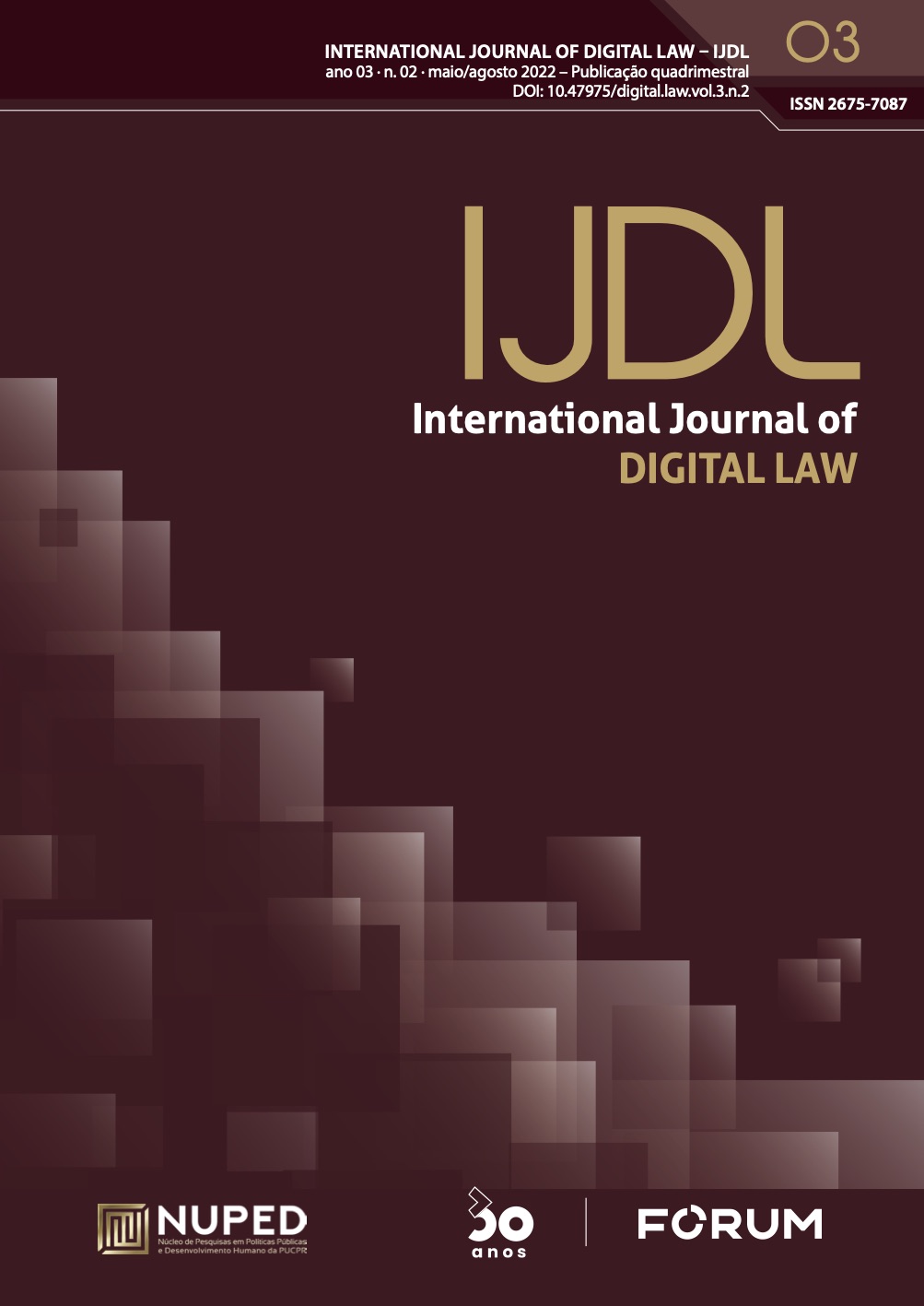Impacts of information technology and digital tax management: leading cases and the Direct Action of Unconstitutionality No. 5,659 of the Federal Supreme Court of Brazil
Impacts of information technology and digital tax management: leading cases and the Direct Action of Unconstitutionality No. 5,659 of the Federal Supreme Court of Brazil
DOI:
https://doi.org/10.47975/IJDL.zipperer.v.3.n.2Keywords:
Economic and Social Development, Information Technology, Brazilian Tax LawAbstract
The so-called technological revolution or industry 4.0, has formed a new social context and a greater dynamic of the relationships between capital, labor and the tax authorities with some direct actions of unconstitutionalities brought before the Court of Brazil, with historical judgments, in addition to political concerns, being necessary a analysis of tax law in times of crisis and the dynamics of economic and social development. Some scientific elements will be presented for the understanding of state legislative regulation, going through the methodological analysis proper to the economy and administration, then, from this perspective, to finally establish a greater understanding of the tax authorities in the face of the great change in production methods of this century it does not affect the principle of the prohibition of social retrogression or the irreversibility of fundamental rights. The model, using the understanding of the Judiciary, from the perspective of law, providing for differentiated legal treatment for companies, often aiming at encouraging the simplification of tax, or by the simple elimination or reduction of these through a competitive law, without any legal or constitutional obstacle and with the effective participation of the representative entities in the discussions, especially the Tax.
Downloads
References
ASSUNÇAO, Matheus Carneiro. Tributação da Economia Digital. Tratamento Jurídico Tributário do download de software no Brasil. São Paulo: Saraiva, 2018.
BRASIL. STF - Supremo Tribunal Federal. Processo: ADI/5659. Relator: Min. Dias Toffoli. Pesquisa em: http://redir.stf.jus.br/estfvisualizadorpub/jsp/consultarprocessoeletronico/ConsultarProcessoEletronico.jsf?seqobjetoincidente=5132886. Acesso em: 06 fev. 2022.
CARRAZZA, Roque Antônio. ICMS. 15. ed. São Paulo: Malheiros, 2015.
LAVES, Vinícius Jucá; ALVARENGA, Christiane Alves. Da prateleira à nuvem a disputa entre estados e municípios na tributação do uso do software. In: PISCITELLI, Thatiane. (Coord.). Tributação da Economia Digital. São Paulo: Revista dos Tribunais, 2018.
MACEDO, Alberto. ISS – O Conceito econômico de serviços já foi Juridicizado há tempos também pelo direito privado. Direito Tributário e novos horizontes do processo. São Paulo: Noesses, 2015.
MACHADO, Brunelli. A tributação de negócios desenvolvidos por meio de aplicativos de transporte. In: PISCITELLI, Thatiane. (Coord.). Tributação da Economia Digital. São Paulo: Revista dos Tribunais, 2018.
PISCITELLI, Thatiane dos Santos. A inconstitucionalidade do convênio ICMS 106.2017 e a incidência do ICMS sobre bens digitais. In: PISCITELLI, Thatiane. (Coord.). Tributação da Economia Digital. São Paulo: RT, 2018.
Portal do STF. Notícias e Textos. STF conclui julgamento sobre disputa tributária em software: O Plenário decidiu que o ISS é tributável no licenciamento de software e excluiu a incidência de ICMS nessas operações. 18 fev. 2021. Disponível em: https://portal.stf.jus.br/noticias/verNoticiaDetalhe.asp?idConteudo=460772&ori=1. Acesso em: 12 jan. 2022.
SCHWAB, Klaus. A quarta revolução industrial. Trad.: Daniel Moreira Miranda. São Paulo: Edipro, 2016.
Downloads
Published
How to Cite
License
Copyright (c) 2022 International Journal of Digital Law

This work is licensed under a Creative Commons Attribution-NonCommercial-NoDerivatives 4.0 International License.
This journal is licensed by
Creative Commons Attribution-NonCommercial-4.0 International.
Attribution-ShareAlike 4.0 International (CC BY-NC 4.0)
Submission and publication of paper are free; Works evaluated by blind double review; the Journal uses S_cites and CrossCheck (anti-plagiarism); and complies with the COPE Editors Guide - Committee on Publication Ethics, in addition to the Elsevier and SciELO recommendations.

















